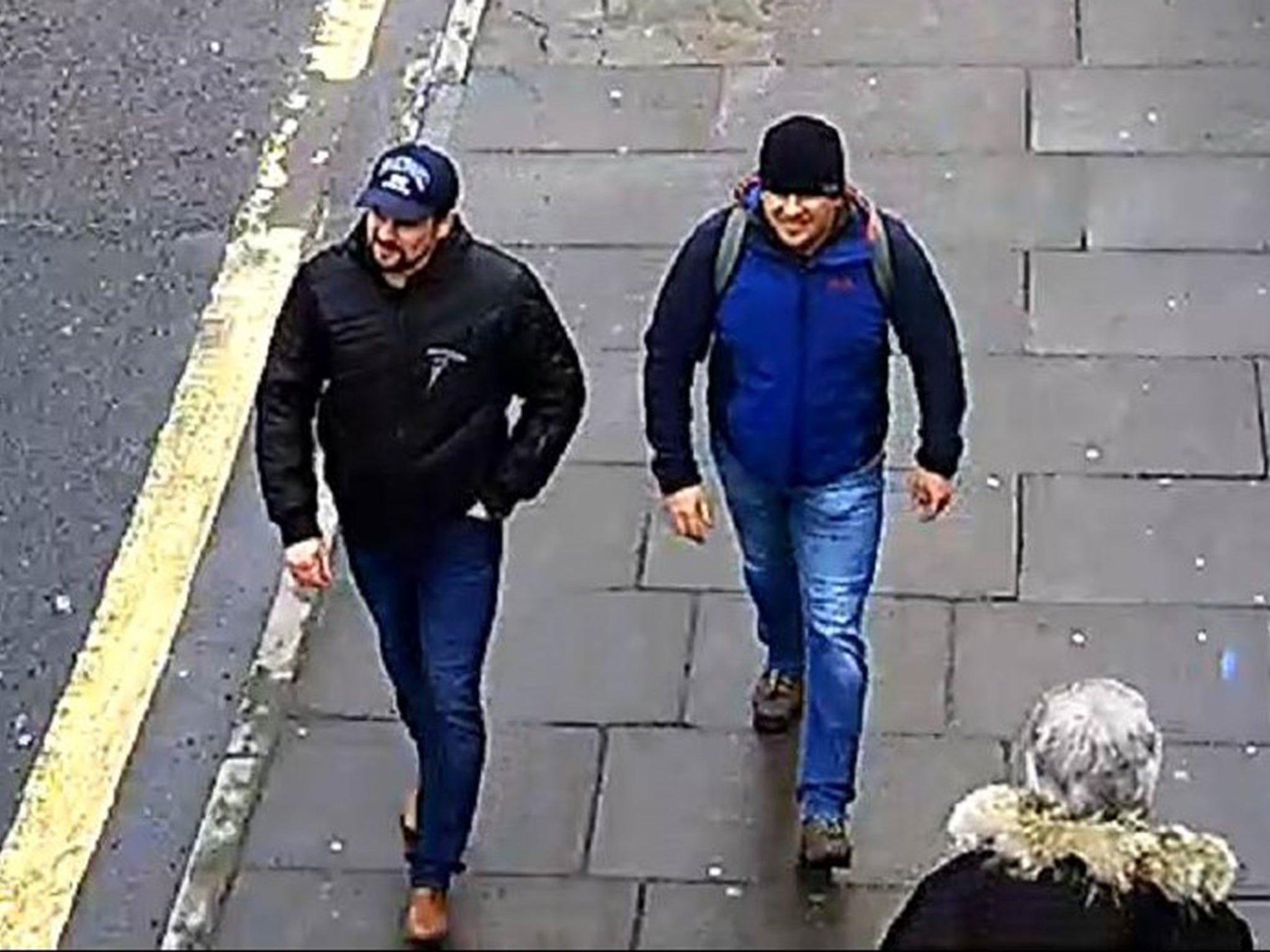Salisbury novichok attack: Police will ‘never give up’ efforts to bring Russian culprits to justice, Cressida Dick says
Investigations into Salisbury poisoning and murder of Russian businessman Nikolai Glushkov continue
British police will “never give up” trying to bring the Russian agents behind the Salisbury poisonings to justice, the country’s most senior officer has said.
Metropolitan Police commissioner Cressida Dick said there was “absolutely” more to do in the ongoing investigation, which identified two alleged culprits earlier this year.
But the GRU agents – Russia's largest foreign intelligence agency – had flown back to Russia immediately after attempting to assassinate Sergei Skripal in March, and the prospect of them being extradited appears slim as the Kremlin continues to deny any involvement.
More than 250 police officers have worked on the investigation, and around 50 are still dedicated to the probe.
“We don’t give up in the Met, never have, not with egregious crimes and homicides,” Ms Dick told journalists on Wednesday.
“We don’t give up, we don’t forget, that’s been the great maxim of the counterterrorism command.
“We will continue to work closely with the government and agencies and continuing with our investigations.”
She spoke as a coroner found that exiled Russian businessman Alexander Perepilichnyy died of natural causes in 2012, after probing allegations that he was murdered for informing on corrupt officials in his home country.

Judge Nicholas Hilliard QC said failings by Surrey Police meant “significant” forensic opportunities were lost after Mr Perepilichnyy collapsed in the street.
But he concluded that there was no evidence of murder, citing a letter from counterterror police confirming they “are not conducting an investigation into Mr Perepilichnyy’s death” at the hands of a hostile agent.
The 44-year-old was one of 14 Russians whose deaths in the UK were reviewed by the home secretary following the Salisbury poisonings.
Ms Dick said the national head of counterterror policing had told all forces and security services to check whether “there was anything to suggest we should do a further investigations”.
“The answer is that has all been done and the answer is no,” she added.
Police are still investigating the alleged murder of another Russian, Nikolai Glushkov, who was connected to dissidents including Boris Berezovsky.
The exiled businessman’s body was discovered at his home in Clarence Avenue, New Malden, on 12 March.
A source told The Independent he may have been strangled with a dog lead, days after the Skripal attack and shortly before Russia’s presidential elections.
Police said there was no initial suggestion of a link to the Salisbury poisonings.
“The Glushkov investigation has continued,” Ms Dick said. “It is a very complex investigation because of the sheer volume of material that we have seized and the examinations we are doing.”
The suspects for the Skripal poisoning – Anatoliy Chepiga, aka Ruslan Boshirov, and Dr Alexander Mishkin, aka Alexander Petrov – were added the US government’s sanctions list on Wednesday for links to the “main intelligence directorate”.
Police combed through more than 11,000 hours of CCTV to trace the suspected perpetrators, who have been identified by the government as two agents from Russia’s GRU intelligence service.
Officials have conceded that the “brutal truth” is that if the suspects do not enter an allied country and get caught, the UK will be powerless to bring them to trial, mirroring thwarted efforts to prosecute those responsible for assassinating Russian dissident Alexander Litvinenko.
Scotland Yard only gave Chepiga and Mishkin’s cover identities when announcing criminal charges in September, but their true names were already known by British security services.
The Independent understands that intelligence agencies decided to reveal only part of their knowledge to protect their sources in Russia, and see what the Kremlin would do.
Their gamble paid off when Chepiga and Boshirov gave an interview to state media that generated global ridicule, after they claimed they were sports supplement salesmen on a three-day holiday to the UK.
The men’s assertion that they travelled to Salisbury two days in a row because of its “internationally famous” cathedral, known “for its 123m spire”, is believed to have generated scepticism even among Vladimir Putin’s most ardent supporters.
Their true identities were released publicly by the Bellingcat website, which uncovered additional information not previously known to security services.
Investigators previously said the amount of nerve agent concealed inside a fake perfume bottle could have killed thousands of people.
After spreading the substance on Mr Skripal’s front door, police believe the spies dumped the bottle in a part of Salisbury where it was accidentally picked up by Charlie Rowley in June.
He gave the “perfume” to his partner Dawn Sturgess as a present and the mother-of-three died days after applying it directly on to her wrists.
Mr Rowley fell seriously ill but recovered after being treated at the same hospital as Mr Skripal, his daughter Yulia and a police officer.
Bookmark popover
Removed from bookmarks